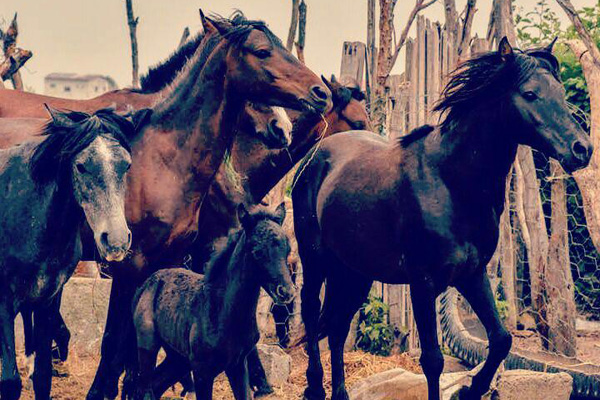An 8-years old male Caspian miniature horse was referred to the Veterinary Teaching Hospital of the University of the Islamic Azad University, Science and Research Branch due to depression, anorexia, sub acute abdominal pain, restless, intermittent pawing on the ground and anuria.
Australian Journal of Basic and Applied Sciences, 5(10): 1081-1083, 2011
ISSN 1991-8178
1 Saeed Ozmaie, 2 Iraj Sohrabi haghdoost and 3 Ahmad Asghari
1 Department of Clinical Science, Science and Research Branch, Islamic Azad University,Tehran, Iran. 2 Department of Pathology, Science and Research Branch, Islamic Azad University, Tehran, Iran.
3 Department of Surgery, Science and Research Branch, Islamic Azad University, Tehran, Iran.
Abstract:
An 8-years old male Caspian miniature horse was referred to the Veterinary Teaching Hospital of the University of the Islamic Azad University, Science and Research Branch due to depression, anorexia, sub acute abdominal pain, restless, intermittent pawing on the ground and anuria.
Abdominocentesis demonstrated a high peritoneal creatinine: serum creatinine ratio. The ratio of the creatinine in the peritoneal fluid to the creatinine in the serum is 72 mg/dl and 8.1 mg/dl and in the abdominal fluid 152 mg/dl and 41 mg/dl. Despite aggressive treatment the horse showed a poor response to treatment with dullness and inappetence. Therefore we decided perform to surgical therapy but on the lowing day the horse died. At necropsy we observed massively distended rectum and small colon filled the pelvic cavity. This produced bladder outlet obstruction, followed by massive dilatation and rupture of the urinary bladder. Also we remove about 15 liters of yellowish, bad smelling fluid, obviously urine and rupture of urinary bladder and sever peritonitis was diagnosed. In fact, some cases die before surgery, probably from cardiac arrest partially due to elevated potassium levels. Surgery consists in the closure of the urine bladder and the washing of the abdominal cavity. When diagnosed quick, in general, the prognosis is favorable: about 80-90% patients survive.
Key words: Bladder rupture, Uroperitoneum, Fecaloma, Caspian miniature, horse.

